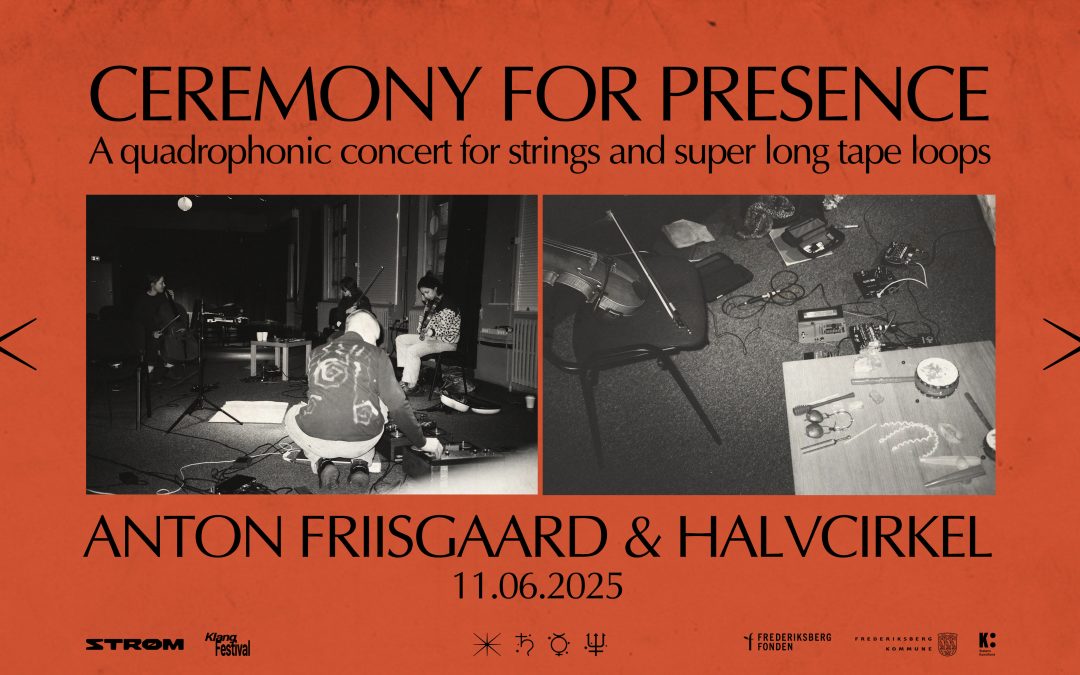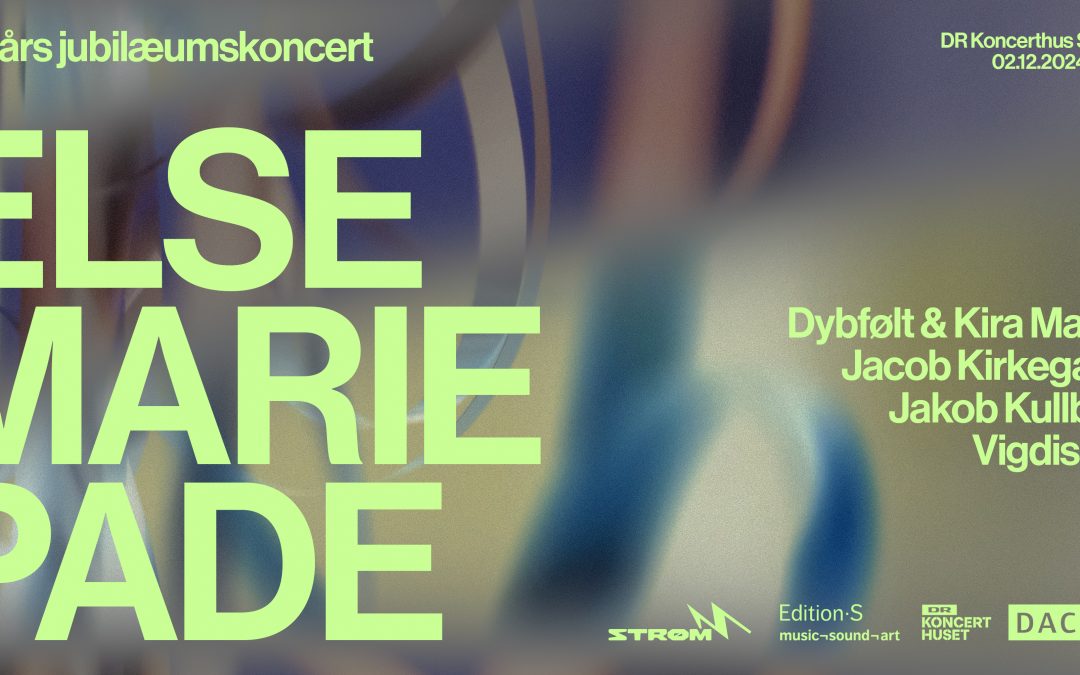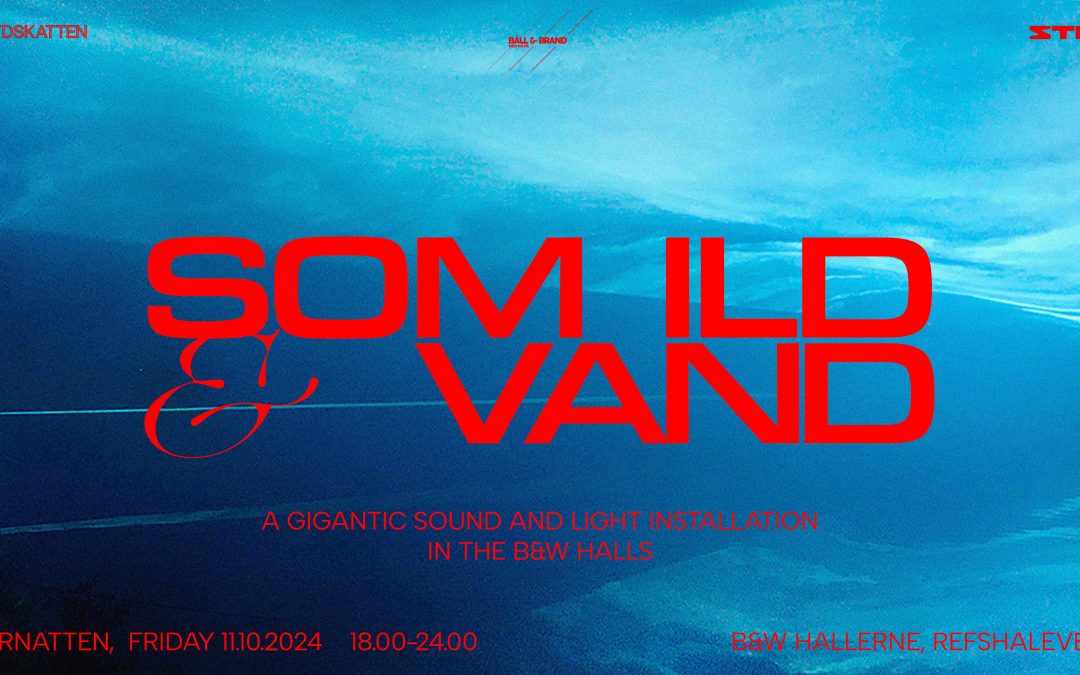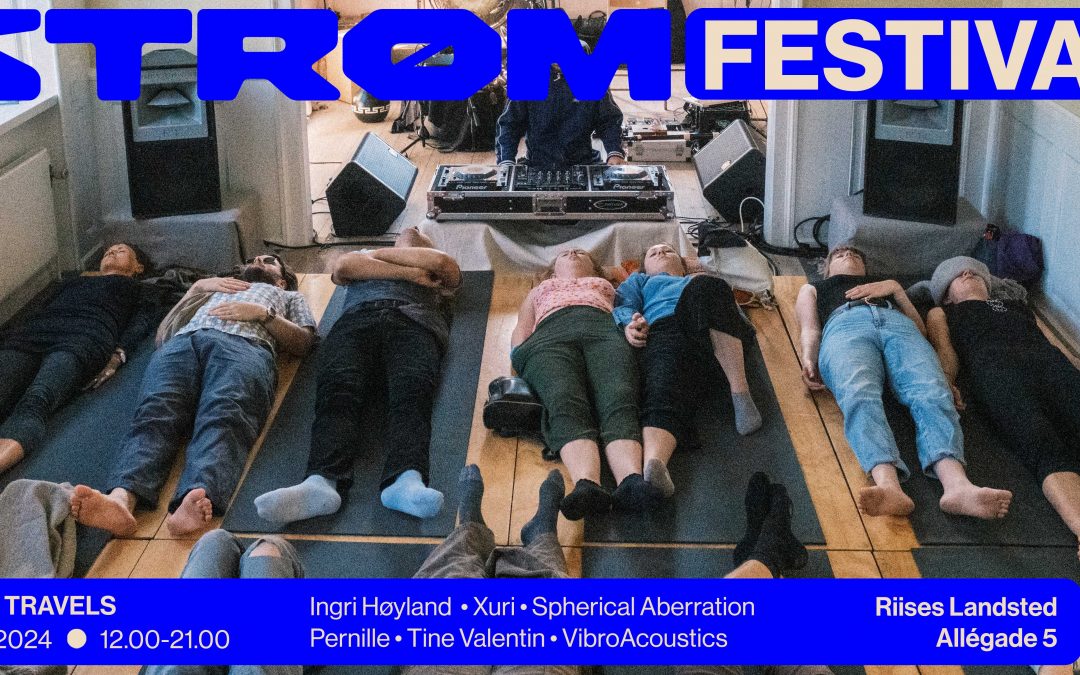At this year’s Klang Festival, the work GLIA by Maryanne Amacher will be performed for the first time in Denmark.
The concert will be loud. Earplugs will be provided.
The concert is presented in a collaboration between Klang Festival and Strøm.
The work GLIA, created by Maryanne Amacher, is named after the cells that create neurological transmissions between the synapses of the brain.
GLIA imagines the oto-acoustic emissions created in the listener’s ears as a ‘glia-like’ connection between the work’s electronic and acoustic instrumental elements.
GLIA was only performed once in Berlin before Maryanne Amacher’s death in 2009.
In 2012, composer Bill Dietz began to intensively explore the possibility of reconstructing GLIA for future performance, facing the problem of recreating a work that was never intended to be repeated.
Since 2019, Ensemble Contrechambs has performed GLIA several times, and at this year’s Klang Festival, the work will be performed for the first time in Denmark.
Amacher’s practice strongly resisted the idea of electroacoustic composition in a fixed form. Instead, her practice was driven by an experiential and exploratory approach, such that most of her works are almost impossible to recreate.
This is also true for GLIA.
After the premiere, when Amacher returned to Kingston, New York, there was a loose plan to continue the collaboration with Ensemble Zwischentöne, who premiered the work, but no one thought the 2006 iteration would ever be repeated.
In 2009, Ensemble Zwischentöne invited Amacher to return to Berlin to continue the development of GLIA, but she tragically died shortly before this could happen.
To date, Ensemble Contrechamps, members of Ensemble Zwischentöne and Dietz have performed new iterations of GLIA in Germany, Italy, Norway, Switzerland, Great Britain and now Denmark.
Each performance of the work is a new chapter in the cumulative, collective genesis of Amacher’s work.
Performers
Ensemble Contrechamps
Ensemble of soloists specialised in creating, developing and communicating instrumental music from the 20th and 21st centuries. For more than forty years, the ensemble has been dedicated to highlighting the diversity of aesthetics and formats that make up the contemporary and experimental music scene.
Maryanne Amacher ((1938-2009))
American composer and installation artist. She is best known for her work with the psychoacoustic phenomenon known as auditory distortion products, her many collaborations with John Cage, and the multi-part drama, Intelligent Life, which, although never fully realised, speaks volumes about Amacher’s ideas on the evolution of music.
Bill Dietz ((1983-))
American composer and author. Since 2012 he has been co-chair of the music/sound department at Bard College’s Milton Avery Graduate School of the Arts in New York. His work on the evolution of music reception and the ‘political aesthetics of listening’ is often presented not only at festivals, museums, and academic journals, but also in apartment buildings, magazines, and on public streets.











